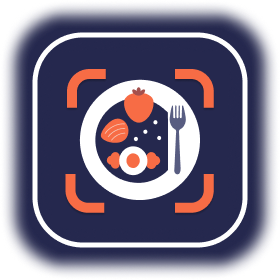Summer brings longer days, outdoor activities, and rising temperatures that significantly impact your nutritional needs. Many people struggle to maintain healthy eating habits during hot weather, often skipping meals or relying on processed snacks. Understanding how heat affects your body's requirements and tracking your intake with photo-based technology can help you stay energized and healthy all summer long.
Track Your Summer Nutrition Effortlessly
Don't let summer heat derail your health goals. Use MyCalorieCounter's photo tracking to monitor hydration and nutrition patterns that keep you energized all season long.
Start Summer TrackingHow Summer Heat Changes Your Nutritional Needs
Hot weather creates unique challenges for maintaining proper nutrition. Your body works harder to regulate temperature, requiring specific adjustments to your eating patterns:
Increased Fluid Requirements
Summer heat increases your daily fluid needs by 20-40%. While the standard recommendation is 8 glasses of water daily, hot weather demands 10-12 glasses plus additional fluids from food sources.
Electrolyte Balance
Sweating depletes essential minerals including sodium, potassium, and magnesium. These electrolytes are crucial for muscle function, nerve transmission, and maintaining proper hydration levels.
Appetite Changes
High temperatures naturally suppress appetite as your body prioritizes cooling over digestion. This can lead to undereating and nutrient deficiencies if not properly managed.
Smart Summer Hydration Strategies
Effective summer hydration goes beyond drinking more water. It requires strategic fluid intake and monitoring:
Hydration Timing
Drink 16-20 ounces of fluid 2-3 hours before outdoor activities, 6-8 ounces every 15-20 minutes during activity, and continue drinking afterwards to replace losses.
Food-Based Hydration
Many summer foods provide significant hydration: watermelon (92% water), cucumber (96% water), tomatoes (94% water), and berries (85-90% water). Photo tracking these foods helps monitor total fluid intake.
Electrolyte Sources
Natural electrolyte sources include coconut water, milk, fruits, and vegetables. Avoid excessive sports drinks unless you're exercising intensely for over an hour.
Master Summer Hydration with Visual Tracking
See exactly how much fluid you're getting from foods and drinks. MyCalorieCounter calculates water content from your photos automatically.
Track Hydration NowOptimal Summer Meal Timing and Composition
When and what you eat during summer significantly impacts comfort and energy levels:
Early Morning Nutrition
Eat your largest meal early when temperatures are cooler. Focus on protein and complex carbohydrates to sustain energy throughout the day. Photo tracking morning meals ensures adequate nutrition before heat peaks.
Midday Light Eating
During peak heat (11 AM - 4 PM), choose lighter options: salads, smoothies, cold soups, and fresh fruits. These provide nutrients without generating excess body heat through digestion.
Evening Recovery
Use cooler evening hours to replenish nutrients missed during the day. Include lean proteins, vegetables, and healthy fats to support recovery and prepare for the next day.
Photo Tracking for Summer Success
Visual food tracking becomes especially valuable during summer when eating patterns shift:
Hydration Monitoring
Photograph all beverages and water-rich foods to track total fluid intake. MyCalorieCounter's AI recognizes hydrating foods and calculates their water content contribution.
Temperature-Smart Choices
Document how different foods affect your comfort level. Cool foods like gazpacho, frozen fruit, and chilled soups can be tracked for both nutrition and temperature regulation benefits.
Activity Fuel Tracking
Photo track pre and post-activity nutrition to optimize performance and recovery. The visual record helps identify which foods provide sustained energy in heat.
"I used to struggle with summer eating - either forgetting meals or grabbing unhealthy snacks. Photo tracking with MyCalorieCounter helped me see patterns and plan better. I'm staying hydrated and energized even on 90-degree days!"
- Maria S., improved summer energy levels
Common Summer Nutrition Mistakes to Avoid
Awareness of typical summer pitfalls helps maintain consistent healthy habits:
Over-relying on Cold Treats
Ice cream, frozen drinks, and cold desserts provide temporary cooling but lack essential nutrients and can cause energy crashes. Use photo tracking to monitor added sugar intake from cooling foods.
Skipping Meals Due to Heat
Reduced appetite shouldn't mean skipping nutrition. Document smaller, frequent meals to ensure adequate intake even when hunger cues are suppressed.
Ignoring Sodium Needs
Low-sodium diets may need adjustment during high-sweat periods. Photo tracking helps balance sodium intake from natural sources while avoiding processed foods.
Beat the Summer Heat with Smart Nutrition
Join thousands who've optimized their summer eating with photo-based tracking. Stay cool, hydrated, and healthy no matter how high the temperature rises.
Download Free AppConclusion
Summer nutrition success requires adapting your eating patterns to support your body's increased cooling demands while maintaining energy and health. Photo-based tracking provides the visual feedback needed to optimize hydration, meal timing, and food choices for hot weather. By documenting your intake, you can identify patterns that work best for your summer lifestyle and make data-driven adjustments for optimal health and comfort.
Your Best Summer Starts with Better Tracking
Make this summer your healthiest yet. Download MyCalorieCounter and discover how photo tracking transforms your relationship with food and hydration.
Get Started TodayJoin 50,000+ users staying healthy this summer
